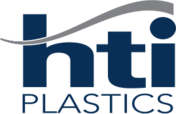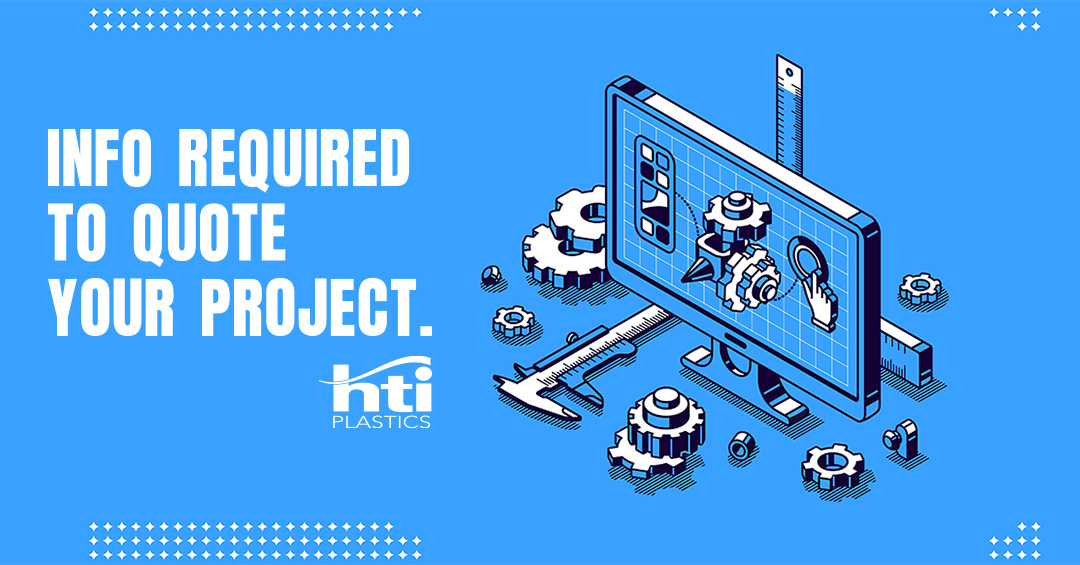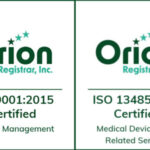Today we will take a look at the information required to quote your plastic project. Often customers and prospects needing plastic injection molded products and solutions come to HTI with an idea and a vision. Many of these companies know what they want in the end but aren’t aware of process it takes to bring their idea to fruition, or what is needed by the injection molder to make this happen.
This is understandable, as injection molding is a process that isn’t familiar to most outside of the industry. This is where HTI Plastics comes in; HTI is here to help our customers and prospects make their ideas come to life, but what do we need to make it happen. For a basic overview of what Injection molding is, click here to view our Injection molding 101 video.
There are a few items that are absolutely needed for HTI Plastics, in-house engineering team to get a quote for a new product, and several that are desirable to have in order to dial the quote in to be as detailed as possible. Here is a look at the Information Required to Quote Your Plastic Project.
What is needed at a minimum to quote an injection molded part?
Drawings
At a minimum we need a drawing. The more detailed the better, but we need to know the dimensions, shape, and what the part will look like. A professional engineering drawing would be ideal, but HTI has taken a conceptual drawing hand drawn and made that project a reality. Our in-house engineering team took that drawing and sketched it out to create an official drawing we were then able to use to create a quote for part pricing and tooling.
HTI can also develop a quote from a sample of the product needed, as that can provide us with the details of the product needed to create a drawing and 3D CAD model. CAD or drawings is key Information Required to Quote Your Plastic Project.
Estimated Annual Usage (EAU)
HTI needs to understand what the estimated annual usage will be for parts we are quoting. This will help to determine what cavitation of tool will be required. It is also important to understand what type of shipping quantities will be required. This can determine lead time, based on how long it will take to run that number of products based on the cycle time and cavitation of the mold.
Quality, Certification, and Regulatory Requirements
If the product needed has certain quality, certification, and/or regulatory requirements, that is important to know upfront. It can play a key factor in the resin type and personnel needs of the part as HTI develops the quote. These requirements can be anything from certification that the parts were manufactured to specific quality requirements, such as ISO regulations, material certifications, or requirements from a mutually agreed upon quality plan. Other requirements can include FDA standards, cGMP standards, ATF/FFL requirements.
HTI will take all of these requirements into consideration when developing a quote package for our customers and prospective customers.
Do we need to know what type of material we are going to use before quoting?
The short answer is No. However, knowing what type of plastic resin you need can be a great deal of help to our quoting team, and will definitely help the turn-around time of getting our quote back to you.
If a company doesn’t know what type of material they want or need for a project, HTI Plastics material experts can help determine what material would be the best fit for your product. Our material experts will work with our vast network of material providers to determine this material, but we will need to know details of the part to help us find the right plastic resin for your needs.
What information is needed to determine the right type of material needed for a specific product?
HTI will need to know what the product will be used for, how it will be used, and what type of environment will the part “live” in and/or be exposed to once it is on the market? There are several things to consider here, as various type of plastic resin react differently to different types of exposure.
Things that need to be considered when determining type of resin include the following:
i) Chemical exposure
ii) Temperature range
iii) Humidity exposure
iv) UV exposure (sunlight)
There are also mechanical elements to consider when determining what type of plastic resin to be used in your product. HTI would need to know if the part will be in a constant state of load or force. It is important to know the strength needed during the life of the product and the requirements of the product as part of its functionality. Furthermore, it is important to understand what the maximum amount of load or force the part may experience, how long the part will be exposed to the state of load or force? Finally, in what direction will the load or force be applied to the part?
HTI Plastics also works heavily in the pharmaceutical and medical device industry, many of these products require sterilization. It is important to know early on in the quoting process if the product would require sterilization. If they do have this requirement, what kind of sterilization process will the parts be sent through?
This is needed early on, as if it isn’t known to HTI during the quoting process and comes to light after the project is awarded, this could impact what plastic resin is used and affect the part pricing and even the processing of how the product is run. Material type and functionality is key Information Required to Quote Your Plastic Project.
Additional information helpful to the quoting process
CAD Models
Previously we talked about the need for drawings. In an ideal world HTI would have 3D CAD models to review as part of the quoting process. These CAD models are very much preferred, as they communicate the part design and function to the engineers much more effectively. These are also needed to get a tooling quote from our tool/mold builders. A 3D CAD model is required by 99% of mold builders to be able to obtain a quote for tooling. HTI can model the part for you, but this can extend the quote lead-time, and there may be a cost associated with the services, depending on what level of drawing is included with the quote package.
Cosmetic Requirements
There are many cosmetic requirements to consider if the are desired or required for your product. It is beneficial to understand what type of texture or polish is needed for the part, as this can have a large impact on not only the part pricing, but also the cost of the tool or cost of the mold. It is helpful to know if the part would need a matte/EDM finish, does it have a polished surface, or are there any etched surfaces in the mold to create a specific/custom surface finish.
Color of the part plays a large role in the costing of injection molded plastic products. Whether the parts is clear, translucent, or opaque can make a significant impact on the part pricing. The part being a basic color or a unique specific color can also play a major role in the costing of a part, and the turn around time of the quote. Know the specific pantone number of the part at the beginning of the quoting process can save a large amount of time when it comes time to move the part to production. HTI does have the capability to provide color matching services through our vast network of color house vendors.
Additionally, it would be beneficial to understand at the time of quoting if the part needs to have a decoration applied to it. What constitutes decoration, and what does HTI mean by it? Types of decoration include, but are not limited to the following:
- Plating
- Painting
- Printing
- Bar coding/lot numbering
Finally, regarding cosmetic requirements it is important to understand what and where the critical cosmetic areas are and what the needs are for those areas. These include; areas that are customer facing and should be protected from scratches, scuffs, etc, as well as areas that should not have markings from the mold (ejector pin marks, gates, etc.). This is all key Information Required to Quote Your Plastic Project.
Secondary Operations
Secondary operations needs are desired to know during the quoting process, as they play a role in what is truly needed by the injection molder to produce the finished good part. Secondary operations are the machining of features that cannot be molded into the part, decoration applied to the part, assembly of mating components, sonic welding of metal inserts, and special or individual packaging.
HTI offers a wide variety of secondary operations, and is willing and open to review new secondary operations if the quote has requirements we don’t currently offer.
Tooling Requirements
Many of the tooling requirements are determined by other information we have reviewed in the quoting needs and desires blog. Cavitation is largely determined by the estimated annual volume needed for the product, however there is additional information regarding the tool that is important to understand. Initially HTI needs to know if the customer wants domestic or off-shore tooling. HTI works with a large network of domestic tooling providers, and also has several off-shore told builders and mold makers we have worked with previously.
It is important to understand what the mold life expectations are, if there is a need for any spare components and is there is a need for steel safe adjustments (SSA) for critical and key dimensions.
If the customer or prospective customer does not have this information, HTI Plastics in-house tool room and engineering departments will work with our tool builders to present what our recommendations are as part of the quote package received by HTI Plastics.
It is noteworthy to state HTI Plastics also accepts quote packages with tool transfers. HTI has taken on several products where the part is already in production and our customer or prospective customer is needing to transfer the tool to our facility. In a later blog as part of this series we will look at needs HTI has for transfer tool quotes, and the process in which HTI reviews transfer tools to ensure the tool is in optimal working condition. Details about the tooling is key Information Required to Quote Your Plastic Project.
Packaging Requirements
HTI Plastics has developed standard of packaging requirements we included as part of our quote packages. We determine what size and style of boxes, etc. will work best for the product we are quoting. However, if there are specific requirements those are needed as part of the quoting process. Questions to ask yourself about your packaging needs could include, do you need a certain box size, does the box need to have a weight requirement, does the box need to be lined with a poly bag, do you have any special labeling requirements for the packaging?
Special labeling requirements could include items such as; PO number, lot number, date code, part number, specific description, etc. Understanding the packaging requirements and how our customers will off load the product is key Information Required to Quote Your Plastic Project.
Qualification Requirements
Our final category we will look at in our review of information needed and/or desired to develop an injection molded quote are any specific qualification exercises required to approve the final product.
Do you require First Article Inspection (FAI)? This is typically a five-piece dimensional inspection.
Do you have pilot run requirements. This is a mini-Production run(s) to verify dimensional stability over a small run.
Do you have validation run requirements? This consists of multiple small production runs to validate the process is robust and produces the same parts over a snapshot of time, as well as CPK/PPK analysis.
Thank you for taking time to read through our look at information needed and information desired to quote a custom injection molded part. If you made it this far, our hope is that you found the information informative and you now have a deeper understanding of all that goes into creating a quote for an injection molded plastic part. If you are here after skimming the blog post and are needing a part quoted, please reach out. We are happy to have an initial fact finding call with you where we will go through questions hitting on these points to determine what information is available and what HTI needs to dig into in order to provide you with a detailed quote customized to your needs. Please check back to our website and social media platforms for the next blog in our injection molding 101 series; “How to find an Injection Molder to fit your needs.”
All of this information can help with quote turnaround time and accuracy of the quote. It is all key Information Required to Quote Your Plastic Project!
Jamee Thieman – Sr Engineer/Sales


